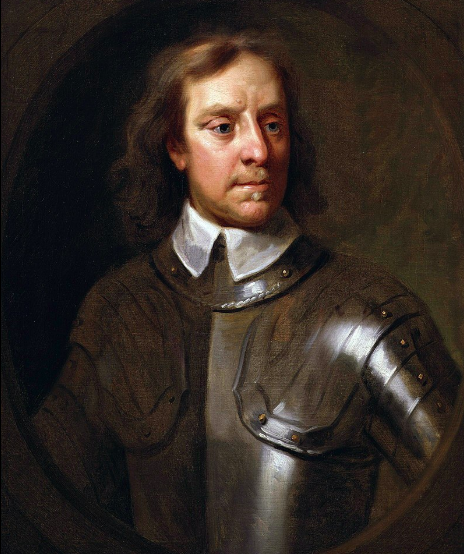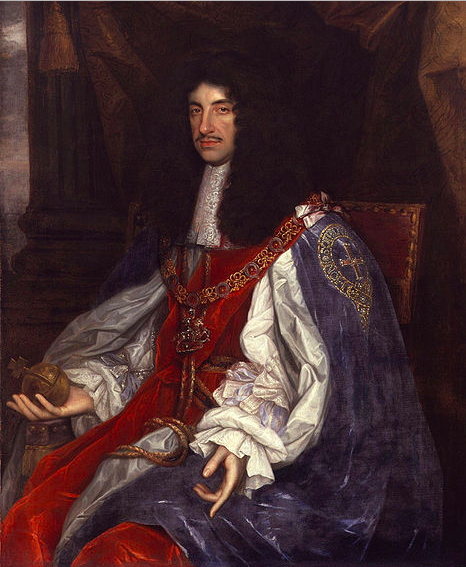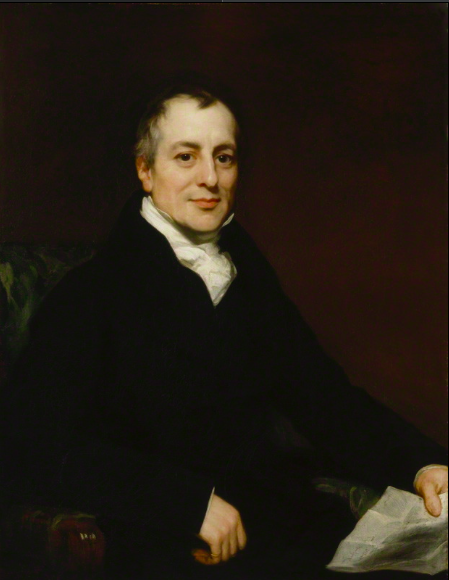Mercantilism and the Navigation Acts
The Navigation Acts of 1651, 1660 and 1695; The Woollen Act of 1699; The Hat Act of 1732; Molasses Act of 1733; The Iron Act of 1750; The Sugar Act (Revenue Act) of 1764
During the 16th and 17th centuries, “Mercantilism” was the prevailing economic theory relied upon by the emerging European nation-states. Mercantilism was based on the premise that the nation as a whole, not the individual, was the principal actor in an economy. Under mercantilist doctrine, the government and merchants work together to create surpluses through the granting of monopolistic privileges, state subsidies and protection of domestic industry.
Mercantilist policies had the the effect of favoring special interests such as chartered companies and merchants’ guilds. Under mercantilist theory the goal of economic activity was to increase the nation’s total wealth, often measured as specie (hard currency). To the extent that gold/silver could be used to raise and equip armies and build navies, the theory had superficial appeal. Mercantilism remained the dominant economic theory until the publication of Adam Smith’s Wealth of Nations in 1776.
Overview: Economic and foreign policy was motivated by mercantilist assumptions for over 200 years. During this period Parliament adopted a series of laws intended to protect and promote British manufacturing and trade, including: the Acts of Navigation and Trade governing shipping and trading (12 Cha. II c. 18); the Woollen Act of 1699 protecting Britain’s textile industry (10 W. III c. 16); the Hat Act of 1732 promoting the domestic hat industry (5 Geo II c. 22); the Iron Act of 1732 restricting the manufacture of finished iron products by the colonies (5 Geo II. c 29); the Molasses Act of 1733 taxing imported molasses from non-English colonies (6 Geo II 13); and the Sugar Act of 1764 which expanded the Molasses Act and attempted to reduce the smuggling of sugar and molasses (4 Geo. III 15).
These laws were based on the paradigm that governments competed with each other – in a zero sum game – for wealth and prosperity. What one nation gained was considered a comparative loss to another competing nation. The goal was for nations to become as self-sufficient as possible while maintaining a favorable balance of trade. Exports were promoted at the same time that imports were discouraged. Of course, colonies played a critical role in this process since they were positioned to supply raw materials and markets for the mother country.
In the first half of the 1600’s, Dutch shippers and banks dominated international trade. In addition to providing capital, the Dutch operated the highly lucrative global “carrying trade” around Europe. It is estimated that Dutch shippers and merchants owned three quarters of the commercial ships in Northern Europe.


In 1649, the Rump Parliament executed Charles I. In 1651, Oliver Cromwell took steps to weaken the Dutch and exclude Dutch merchants and ships from England’s ports. By passing the Navigation Acts, Cromwell and his merchant supporters sought to exclude the Dutch from English markets and facilitate the construction of an English merchant fleet. The result was three Anglo-Dutch wars during the 1650s, which ultimately resulted in the English conquest of New Amsterdam, which was renamed New York.
After Cromwell’s death, the Long Parliament revoked all laws passed by the preceding Rump Parliament under Cromwell (a period known as the Interregnum or the Commonwealth of England). As described below, the Navigation Acts of 1651 would be re-instituted and subsequently strengthened in 1660, 1663, 1673, 1696, and 1733 with the Molasses Act (otherwise known as the Revenue Act of 1733). By 1700, the English merchant fleet rivaled the size of its Dutch competitors.
Navigation Acts: Beginning with the Navigation Acts of 1651, Parliament established three principles to govern trade and commerce. First, only British or colonial ships could engage in trade in the colonies. As indicted by its title, an “Act for Increase of Shipping and Encouragement of the Navigation of this Nation,” the Navigation Act of 1660 left no doubt as to the objective. As defined by Parliament, a ship was British if its owner was British (or American), or at least 3/4 of the crew was British (or American).
This loophole greatly benefited American ship owners and ship builders, but ultimately undermined the effectiveness of the Navigation Acts by facilitating smuggling. It would later turn out that some of the most ardent patriots at the time of the Boston Tea Party were American shipping magnates (and notorious smugglers), including John Hancock and his ally Sam Adams. Not surprisingly, Hancock was smuggling less expensive Dutch tea, molasses and paper.
Second, certain colonial commodities could only be sold in England, not directly to other countries. These “enumerated” goods included wool, sugar, tobacco, indigo and dyes, but were later expanded to cover naval supplies (masts, pitch, tar and turpentine), cooper and furs. Third, all foreign goods intended for sale in the colonies were required to be shipped through London where it was subject to import duties. Lastly, over time Parliament increasingly began to limit the ability of the colonies to manufacture or export finished products that could compete with English manufactured goods.
The purpose of the Navigation Acts was to direct colonial trade for the benefit of Britain. England would have first claim on valuable colonial exports and all foreign imports into the colonies had to pass first through England. These policies promoted royal custom revenues. British merchants also benefitted through the grant of monopolies on American trade.
Parliament soon found, however, that it was easier to write mercantilist legislation than to enforce it. The extensive American coastline provided plentiful havens for smugglers and colonial officials were more than willing to look the other way in exchange for bribes. In addition to smuggling off the coast of America, shippers also traded enumerated good in the Caribbean where they avoided tariff duties.
Beginning in 1696, Parliament attempted to strengthen enforcement of the earlier Navigation Acts. The Navigation Act of 1696 established “Vice-Admiralty” courts that operated without juries. In England these courts dealt only with maritime cases involving piracy and wartime prizes. The American “Vice-Admiralty” courts, however, were given jurisdiction over smuggling by the Navigation Acts. Thus, Navigation Act cases were removed from the regular colonial courts, to avoid the tendency of American juries to favor local smugglers.
In 1696, Parliament also began intervening in colonial administrative affairs by creating the 15-member Board of Trade and Plantations. The Board of Trade represented an early effort to centralize oversight over the colonies. The Board served as the chief means of royal authority, collected information, scrutinized colonial assemblies, supervised colonial trade policy, and advised London on colonial affairs. While the Board of Trade improved colonial administration, the sprawling American colonies still remained largely decentralized since the Board of Trade lacked enforcement powers and shared jurisdiction with the custom service, the British Navy and the Secretary of State for the Southern Department.
Despite their shortcomings, the Navigation Acts arguably succeeded in aiding Great Britain’s rise as Europe’s foremost shipping nation. At the same time, the Navigation Acts facilitated the growth of the colonies under the protection of the growing British Navy.
The expansion of colonial shipping also hastened the growth of colonial ports. By 1770, Philadelphia was the second largest port in the British empire, after London, with New York not far behind. Shipbuilding emerged as an important colonial industry. By 1770, nearly 1/3 of British commercial ships were American owned.
Mercantilist corporations: Mercantilist theorists believed that the state should establish franchises for promising industries which would operate as exclusive monopolies. These corporations acted as an arm of the government, and were more powerful than the government itself in many cases. In return, the government developed regulations, subsidies and, if needed, military force to protect the royal corporations from foreign competition.
Arguably the leading mercantilist in Europe was French statesman Jean-Baptiste Colbert. As Louis XIV’s Finance Minister (and Secretary of the Navy) from 1661 to 1683, Colbert worked to develop the French economy by raising tariffs and establishing the French West India Company (FWIC) in 1664. Of course, Colbert modeled the FWIC off of the Dutch East India Company (known as the VOC) which had been established in 1602.

Colbert’s economic programs helped make France the dominant power in Continental Europe. Colbert encouraged skilled workers from abroad to bring their expertise to France. He facilitated the formation national industries, including shipbuilding, and promoted French commercial monopolies and trading companies.
The most famous – and the most powerful – mercantilist corporations were the British and the Dutch East India Companies. By grant from the King the British East India Company held the exclusive right to conduct trade between Britain, India and China for more than 250 years. Its trade routes, and tax receipts, were in turn protected by the Royal Navy.
Nevertheless, British government control over the domestic economy was far less extensive than on the Continent. In general, English common law and opposition in Parliament limited the impact of mercantilist policies on British markets. For example, from the 1720s to the 1760s Parliament’s unwritten policy of “salutary neglect” only laxly enforced colonial trade regulations. Under the leadership of Robert Walpole and Thomas Pelham-Holles loyalty to Britain was emphasized over governmental regulation. Walpole understood that, “If no restrictions were placed on the colonies, they would flourish.” And they did.
Mercantilism v. Free-Market Capitalism: Mercantilist theory presumed that wealth was finite, ultimately limited by the amount of gold or silver in circulation. One nation could only grow rich, according to the theory, at the expense of another. A nation’s health depended, therefore, on extracting as many natural resources as possible from colonies and maintaining a positive balance of trade. These mercantilist principles guided the national economic policies of the developing countries of Europe as they transitioned from feudal economies to centralized nation-states.
One of the leading explanations of Mercantilist theory was written in 1644 by Thomas Mun, the Director of the East India Company. Mun’s work, England’s Treasure by Foreign Trade, remained largely unchallenged until Scottish economist Adam Smith (pictured below) published his defense of competitive free-markets, The Wealth of Nations, in 1776.

Understanding the weakness with mercantilist theory, Adam Smith concluded that national wealth was determined not by the gold in the king’s coffers. For Smith, national income which was based on the labor of its inhabitants and the productive use of accumulated and growing capital.
Smith warned of the dangers of monopoly and mercantilism (a term coined by Smith). For Smith the key was economic efficiency which was achieved through market based competition. In place of governmental controls, Smith extolled the value of the invisible hand of free market capitalism.
The classical economists who followed Adam Smith advocated for free trade, in contrast to their mercantilist predecessors who were dedicated to protectionism. As expounded by Adam Smith, David Hume, Jean-Baptiste Say, David Ricardo, Thomas Malthus and John Stuart Mill, free market capitalism argued that real wealth was best achieved by full employment and market efficiency, rather than mercantilist devices which best served the interests of the merchant class.


David Ricardo’s family was of Portuguese ancestry but had immigrated to England from the Dutch Republic. Ricard began focusing on economics after reading Smith’s The Wealth of Nations. In 1809 Ricardo wrote that England’s inflationary woes were the result of the Bank of England’s issuance of excessive banknotes. Ricardo was expounded the quantity theory of money, now known as monetarism. Click here for a link to Ricardo’s seminal work, Principles of Political Economy and Taxation (1817).
In his Essay on the Influence of a Low Price of Corn on the Profits of Stock (1815), Ricardo articulated what would come to be known as the law of diminishing marginal returns, one of the most famous laws of economics. Ricardo also opposed England’s protectionist Corn Laws, which restricted wheat imports. In arguing for free trade, Ricardo proposed the idea of comparative costs (now know as “comparative advantage”), which is the underlying justification for free trade.
Unintended consequences of British victory during the Seven Year War: As described above, British Mercantilist policy was originally designed to protect domestic manufacturing and raise revenue. After the Seven Years War, also known as the French and Indian War, the need to raise revenue became more acute. Britain had borrowed heavily to finance the lengthy war that ended in 1763 with the Treaty of Paris.
While the British victory over France was decisive, it was also expensive. The Treaty of Paris in 1763 confirmed Britain’s undisputed control of the seas and its sovereignty over most of North America. Nevertheless, the need to repay the war debts set in motion a chain of events that resulted in the American Revolution.
To finance the war, Britain borrowed heavily from British and Dutch bankers and England’s national debt almost doubled from £75 million in 1754 to £133 million in 1763. Larger import duties on sugar and tobacco, along with the infamous Stamp Act necessitated expanded government bureaucracy. Ironically, even as Britain celebrated its preeminent position in the world, the colonies resisted their threatened loss of autonomy. After more than a century of self-government and salutary neglect, the colonies felt threatened by the continuation of Britain’s mercantilist policies.
Additional reading:
A Short History of Mercantilism (J. W. Horrocks, 1925)